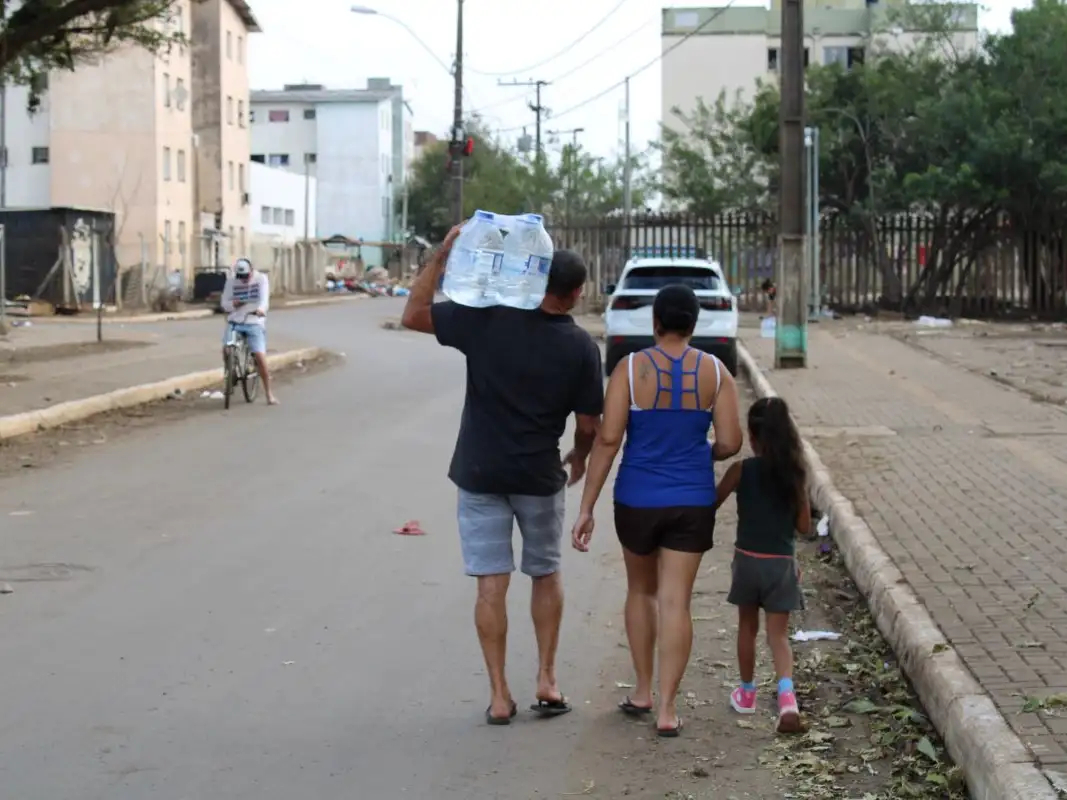CAFOD's work in Brazil
CAFOD is working with indigenous people in Brazil to protect their rainforest home, supporting homeless families in their struggle to find housing, and helping young people find opportunities for a better life.


Families getting support after floodings in Brazil - Photo: Caritas Brasiliera
At the end of April, heavy rains devastated cities and towns in Brazil. The flooding affected more than 2.3 million people in Rio Grande do Sul, the country’s southernmost state. At least 179 people were killed, with more still missing, and hundreds more injured.
Nearly four months later, the emergency is far from over. The extent of the damage caused by the unprecedented rainfall has left homes and infrastructure wrecked, and families struggling to rebuild their lives.
In the wake of the disaster, local experts from our Caritas network are supporting the people worst hit.
"Thanks to the coordinated work between CAFOD and Caritas Brazil, and the support of the START Fund (a fund that helps charities respond to underreported crises), we were able to respond to this to this emergency quickly,” said Cecilia Lorio, CAFOD’s country representative for Brazil.
“Our colleagues from Caritas Rio Grande do Sul, even those who had been impacted by the floods themselves, were on the front line, responding and seeking to alleviate the suffering of so many people and families impacted”
In the city of Canoas, one of the worst hit areas, residents described the streets of several neighbourhoods being completely “swallowed” by the water.
Roseli Dias, who works for Caritas Regional Rio Grande do Sul, explained that one of the major challenges facing people moving back into their homes is water - the municipal water treatment facilities were submerged by the floods, so tap water is no longer safe to drink. Caritas has been delivering drinking water to families in Canoas, as well as cash transfers to buy food, hygiene supplies and other essentials as they settle back into normal life.
Roseli said: "In the midst of so much sadness and discouragement that we find on the faces of the people affected by this catastrophe, the actions of the Caritas network bring a little hope.”


After floodings people had no access to clean water - Credit: Caritas Brasileira
The people of Rio Grande do Sul have never seen an environmental disaster of this magnitude before.
The floods in Rio Grande do Sul were classified by the state government as ‘the biggest climate catastrophe’ in the state's history. The excessive rainfall, which ranged from 300 to 700 mm (about 2.3 ft) in different regions, affected more than 60 per cent of the state's territory, resulting in grave damage to infrastructure and all the economic sectors.
The extreme weather events are turning into major natural disasters, and climate phenomenon such as ‘El Nino’, which warms waters in the Pacific and brings heavy rainfall to southern Brazil, are also become stronger and more extreme.
Over the past few years, Brazil has felt the impact of climate change with many regions experiencing more and more extreme and unpredictable weather conditions. Later this year Brazilian authorities are expecting severe droughts in parts of the country.
Despite the challenges, we believe a better world is possible when we work together as one human family, Cecilia Lorio explained how collaborating with our partners in Rio Grande do Sul inspires her. We share the same vision and values,” she said.
“We believe in a just, sustainable, fraternal, equitable and inclusive world. We believe in the power of networking, working with volunteers and with disadvantaged and vulnerable communities bringing relief as soon as possible.”
A better world needs all of us. We ask you to join us in prayer for the people in Rio Grande do Sul, Brazil as they embark on the long journey of recovery.
Heavenly Father, we pray for the flood victims of Southern Brazil. Lord, we ask for Your divine protection over those affected, providing them with shelter, food, clean water, and all their basic needs.
CAFOD is working with indigenous people in Brazil to protect their rainforest home, supporting homeless families in their struggle to find housing, and helping young people find opportunities for a better life.